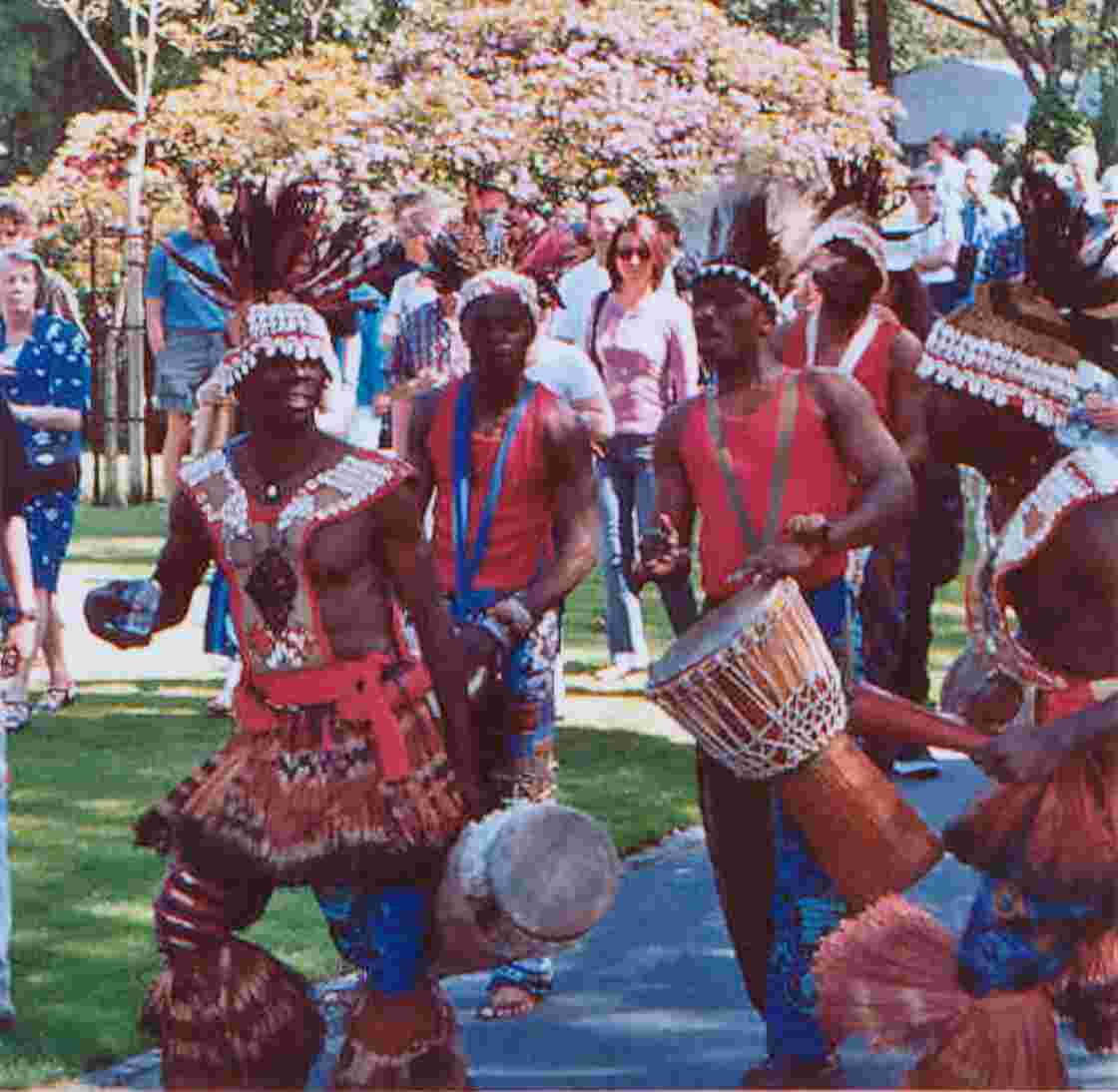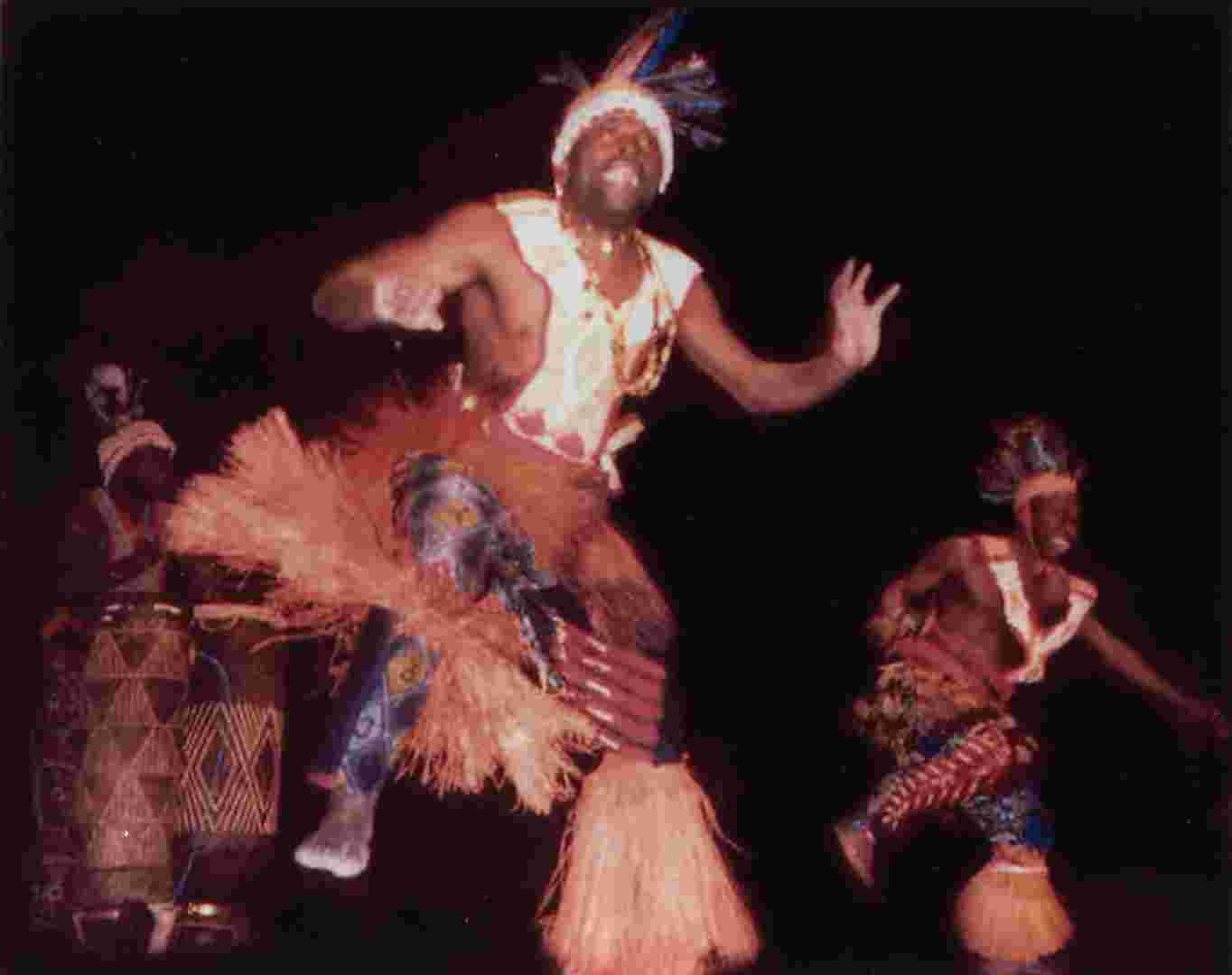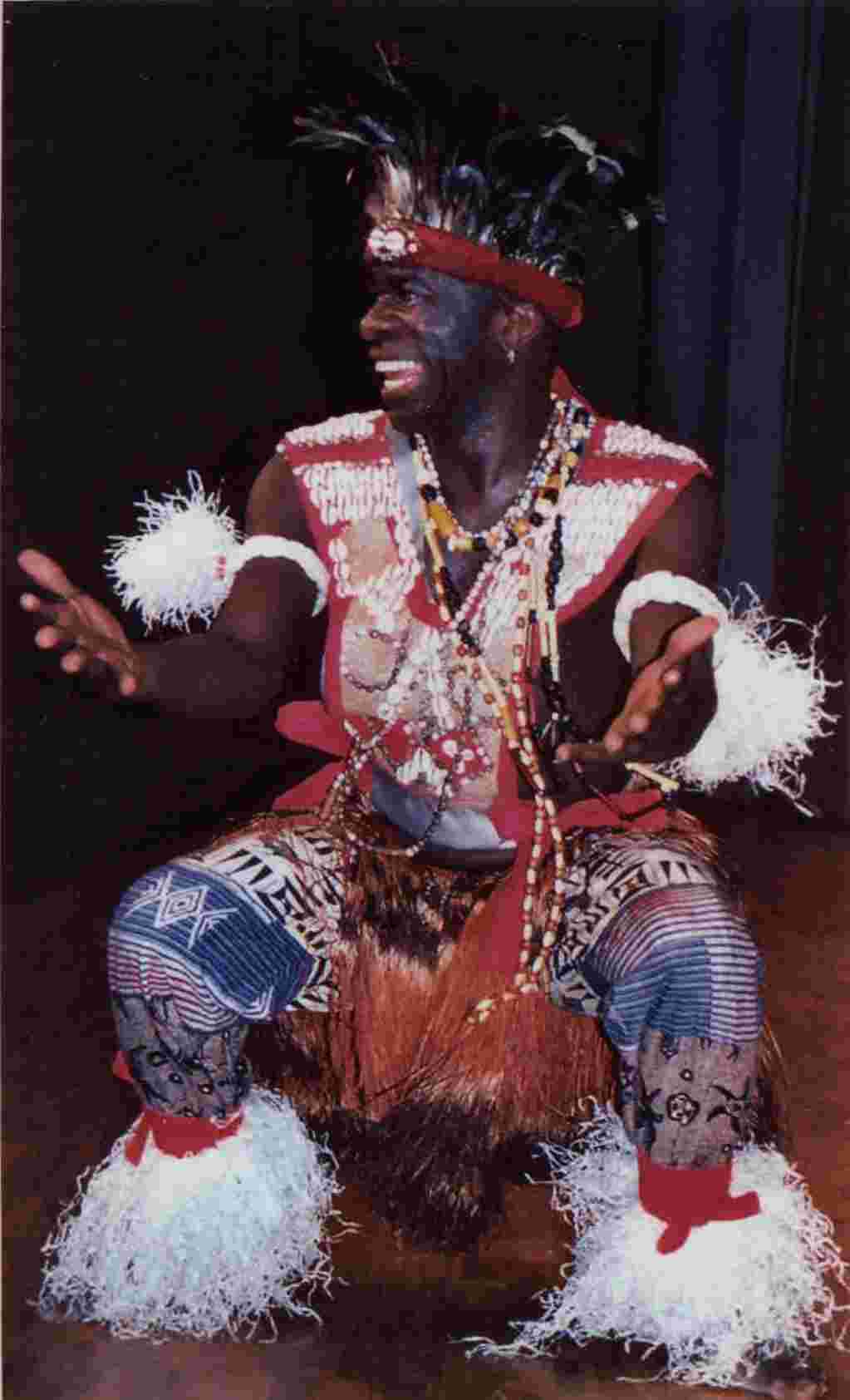
Director: Jean Pierre Amiel
Cast: Elie Lemboussou, Roch Banzouzi, Jacky Makosso, Buanda N'Gandu, Bienvenue Mabouya
We, the residents of Congo, are a nation friendly to the surroundings
Tchicaya U Tam'si
 African culture is highly interesting for two reasons. On the one hand - even though there are no museums or libraries there - it is authentic and intact despite numerous difficulties encountered by the continent. Africa remains an incredible paradise whose Authenticity is a fruit long forbidden in the West. African culture is still alive, everybody can participate in creating it; transmitted by word of mouth it constitutes an integral part of daily communication. It is neither fossilized nor confined to a narrow circle, it lives. "In Africa - says Jean-Pierre Amiel - theatre is everywhere and everyday life is theatre, same as songs, dances or tales."
African culture is highly interesting for two reasons. On the one hand - even though there are no museums or libraries there - it is authentic and intact despite numerous difficulties encountered by the continent. Africa remains an incredible paradise whose Authenticity is a fruit long forbidden in the West. African culture is still alive, everybody can participate in creating it; transmitted by word of mouth it constitutes an integral part of daily communication. It is neither fossilized nor confined to a narrow circle, it lives. "In Africa - says Jean-Pierre Amiel - theatre is everywhere and everyday life is theatre, same as songs, dances or tales."
 On the other hand, African culture is universal, since it was built on original biorhythms. It is available to everybody and not only connects man with earth and the surroundings, but also makes one feel the pleasure of being in harmony with one's own body and the surrounding nature.
On the other hand, African culture is universal, since it was built on original biorhythms. It is available to everybody and not only connects man with earth and the surroundings, but also makes one feel the pleasure of being in harmony with one's own body and the surrounding nature.
African Suns demonstrates the power and beauty of African culture. Through dance and music Compagnie Amiel-Punta Negra presents the traditions of ancestors and elements of culture. The performance is a celebration of sorts, based on various rhythms, music, song and dance. It is made up of dances from Central Africa, especially the Congo region, inspired by traditional dances and performed during ritual ceremonies. We will see:

- warrior dances: they represent the passage of young boys into maturity after a long period of initiation;
- dance of recovery from an illness performed by sorcerers
- Pendé (exit of masks)
- Mami Yokolé (young girl's dance)
- Mapassa (dance celebrating the birth of twins)
- Manianga (espousal dance)
- Ekonda (dance of trials, to emphasize the strength of healthy men)
- Gaza (hunter dance to thank hunting gods for successful hunting
- Yima (mixed dance with brooms and fans to add splendor to harvest and chase insects away)
- Tchiluba (dance of seduction).
Performances: Saturday, 26 VI 2004, 20.30 (Plac przed Teatrem Dramatycznym), Sunday, 27 VI 2004, 21.00 (Amfitetr)
Presentations: Friday, 25 VI 2004, 20.00; Saturday, 26 VI 2004, 20.00; Sunday, 27 VI 2004, 13.30 (Rynek Ko¶ciuszki)